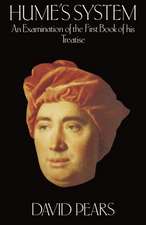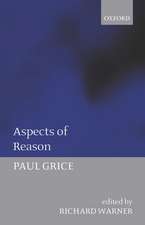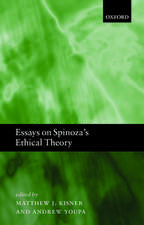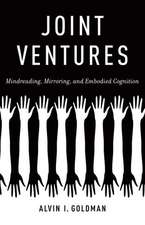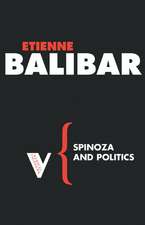Machiavelli, Leonardo, and the Science of Power: Frank M. Covey, Jr., Loyola Lectures in Political Analysis
Autor Roger D. Mastersen Limba Engleză Hardback – 8 iul 1996
| Toate formatele și edițiile | Preț | Express |
|---|---|---|
| Paperback (1) | 327.34 lei 6-8 săpt. | |
| MR – University of Notre Dame Press – 8 iul 1996 | 327.34 lei 6-8 săpt. | |
| Hardback (1) | 702.30 lei 6-8 săpt. | |
| University of Notre Dame Press – 8 iul 1996 | 702.30 lei 6-8 săpt. |
Preț: 702.30 lei
Preț vechi: 962.06 lei
-27% Nou
Puncte Express: 1053
Preț estimativ în valută:
134.39€ • 146.56$ • 113.32£
134.39€ • 146.56$ • 113.32£
Carte tipărită la comandă
Livrare economică 24 aprilie-08 mai
Preluare comenzi: 021 569.72.76
Specificații
ISBN-13: 9780268014162
ISBN-10: 0268014167
Pagini: 406
Dimensiuni: 157 x 235 x 26 mm
Greutate: 0.81 kg
Editura: University of Notre Dame Press
Seria Frank M. Covey, Jr., Loyola Lectures in Political Analysis
ISBN-10: 0268014167
Pagini: 406
Dimensiuni: 157 x 235 x 26 mm
Greutate: 0.81 kg
Editura: University of Notre Dame Press
Seria Frank M. Covey, Jr., Loyola Lectures in Political Analysis
Textul de pe ultima copertă
“Roger Masters has aroused debate by arguing that Leonardo influenced Machiavelli’s thinking in a way that ultimately sparked the development of modern industrial society.” —The New York Times
“Roger Masters finds that the two men of genius collaborated on a Florentine project to divert the course of the river Arno and leave rival Pisa without water. Masters postulates, with good reason, that two such aggressively innovative thinkers must have exchanged more than their views on water channels, and suggests provocatively that Machiavelli’s notoriously objective analysis of power shows traces of Leonardo’s science.” —The New York Review of Books
“In this provocative interdisciplinary study, Masters offers a new interpretation of Machiavelli which helps us understand his ambiguous relation to modern political science.” —The Review of Politics
“Here is a book with which to plunge into a corner of the Renaissance while keeping that period's relevance to modern life and thought squarely at the center of attention. . . . This book is very much worth reading.” —The Jerusalem Post
Roger D. Masters is Nelson A. Rockefeller Professorof Government, Emeritus, at Dartmouth College. He published 16 books and is the author of over 125 scholarly articles. His most recent books include The Neurotransmitter Revolution: Serotonin, Social Behavior and Law and Beyond Relativism: Science and Human Values.
“Roger Masters finds that the two men of genius collaborated on a Florentine project to divert the course of the river Arno and leave rival Pisa without water. Masters postulates, with good reason, that two such aggressively innovative thinkers must have exchanged more than their views on water channels, and suggests provocatively that Machiavelli’s notoriously objective analysis of power shows traces of Leonardo’s science.” —The New York Review of Books
“In this provocative interdisciplinary study, Masters offers a new interpretation of Machiavelli which helps us understand his ambiguous relation to modern political science.” —The Review of Politics
“Here is a book with which to plunge into a corner of the Renaissance while keeping that period's relevance to modern life and thought squarely at the center of attention. . . . This book is very much worth reading.” —The Jerusalem Post
Roger D. Masters is Nelson A. Rockefeller Professorof Government, Emeritus, at Dartmouth College. He published 16 books and is the author of over 125 scholarly articles. His most recent books include The Neurotransmitter Revolution: Serotonin, Social Behavior and Law and Beyond Relativism: Science and Human Values.
Notă biografică
Descriere
Descriere de la o altă ediție sau format:
Arguing that Niccolo Machiavelli should be reconsidered as a major philosopher, this book includes an account of the relationship between Machiavelli and Leonardo da Vinci, their roles in the emergence of modernity, and the implications this holds for contemporary life and society.
Arguing that Niccolo Machiavelli should be reconsidered as a major philosopher, this book includes an account of the relationship between Machiavelli and Leonardo da Vinci, their roles in the emergence of modernity, and the implications this holds for contemporary life and society.







